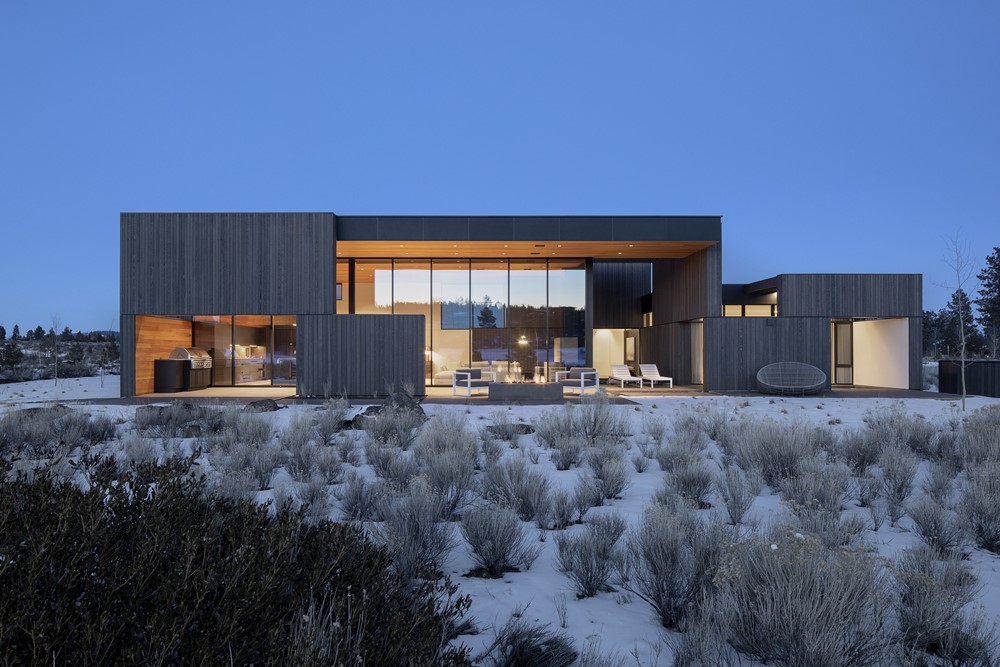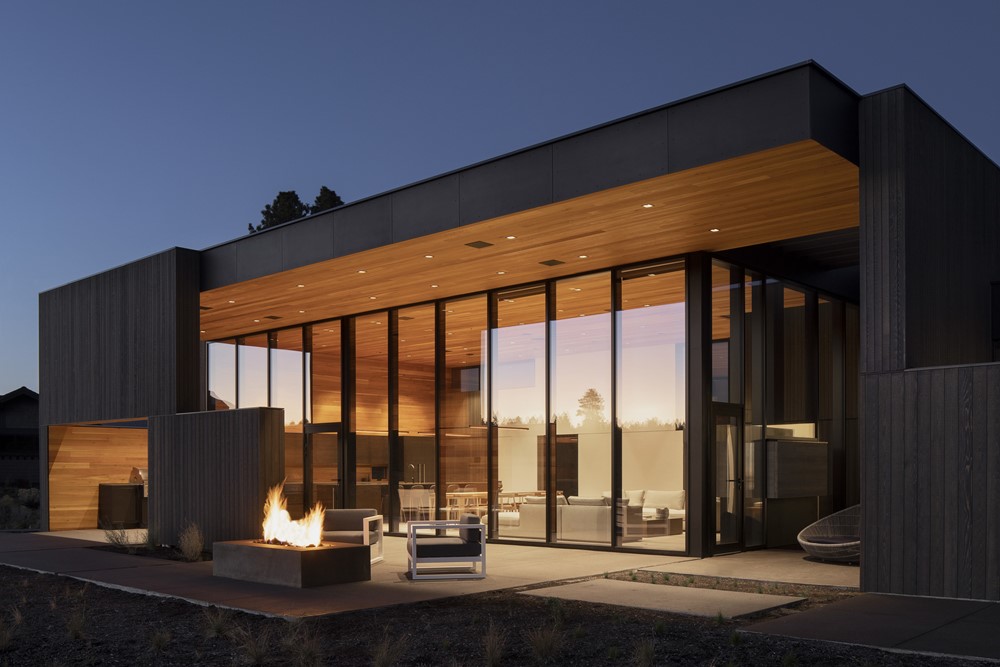High Desert Residence designed by by Hacker is a Central Oregon home that finds a sense of calm and refuge in the balance between landscape and sky. This 4,300-square-foot, four-bedroom house is designed as a regular weekend sanctuary for an active couple, and a getaway for their extended family – a place where everyone can gather and be together, with a balance between private rooms and communal space. Photography by Jeremy Bittermann
.


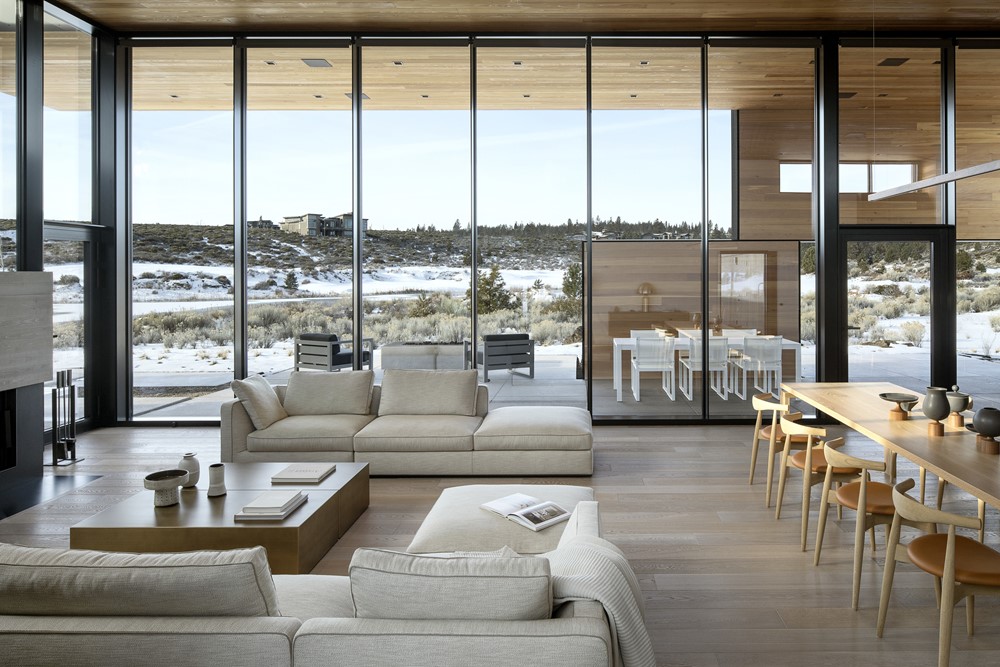
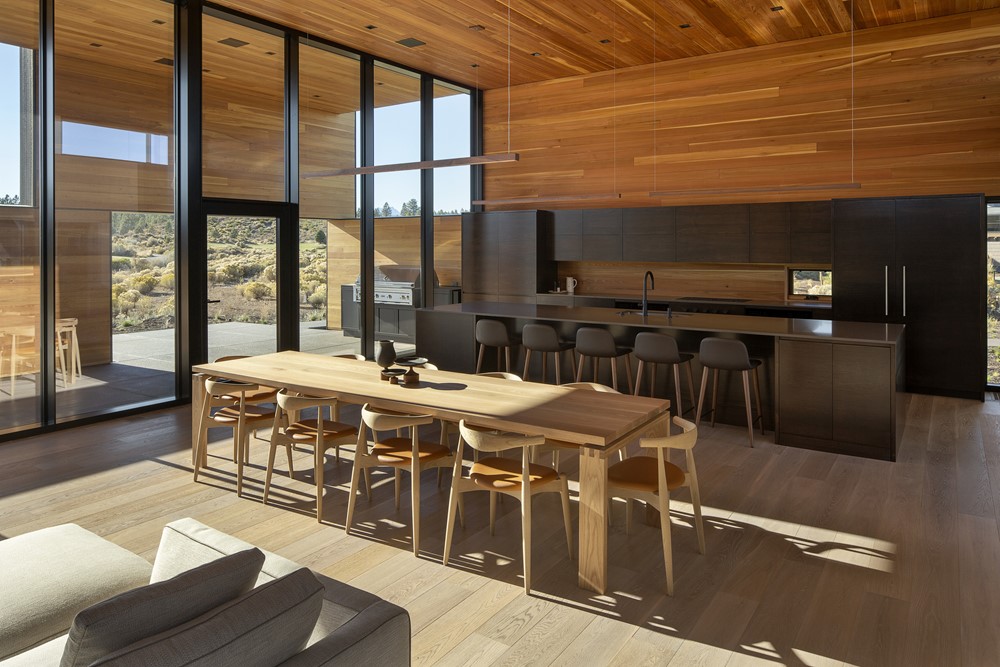
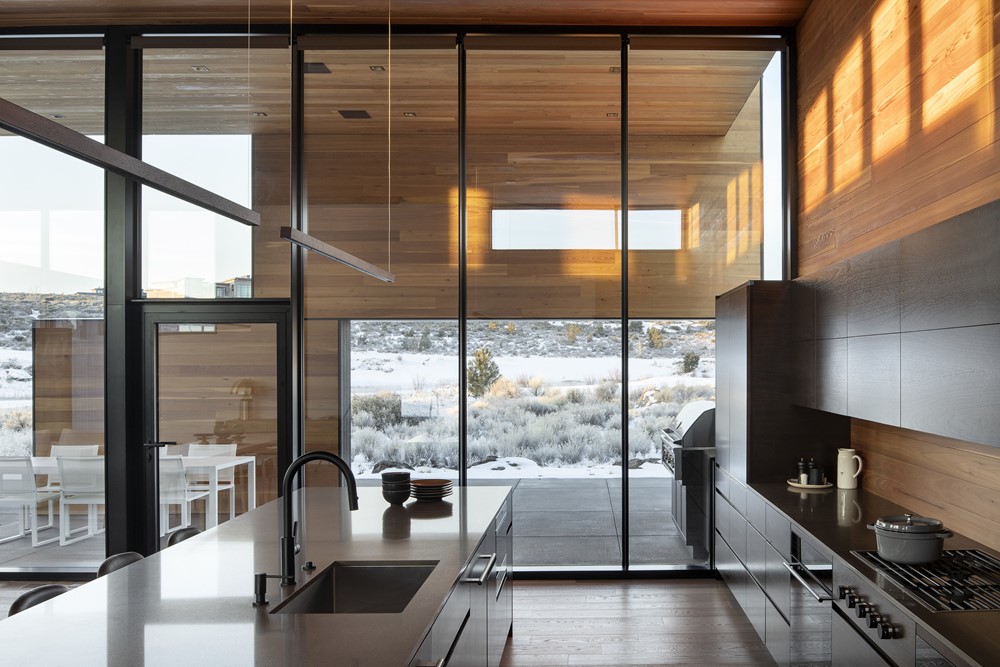
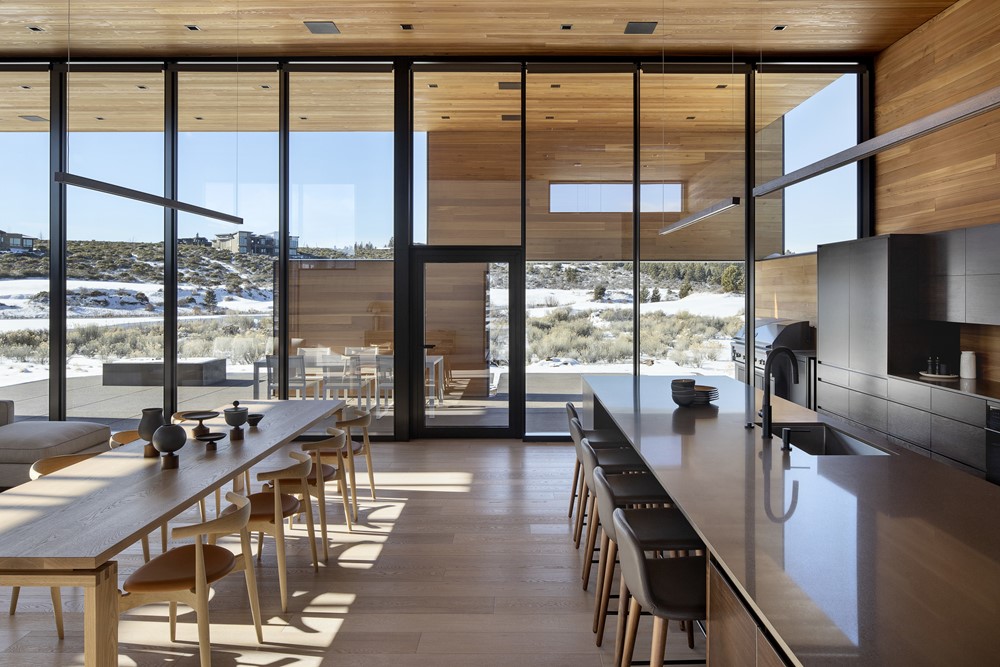
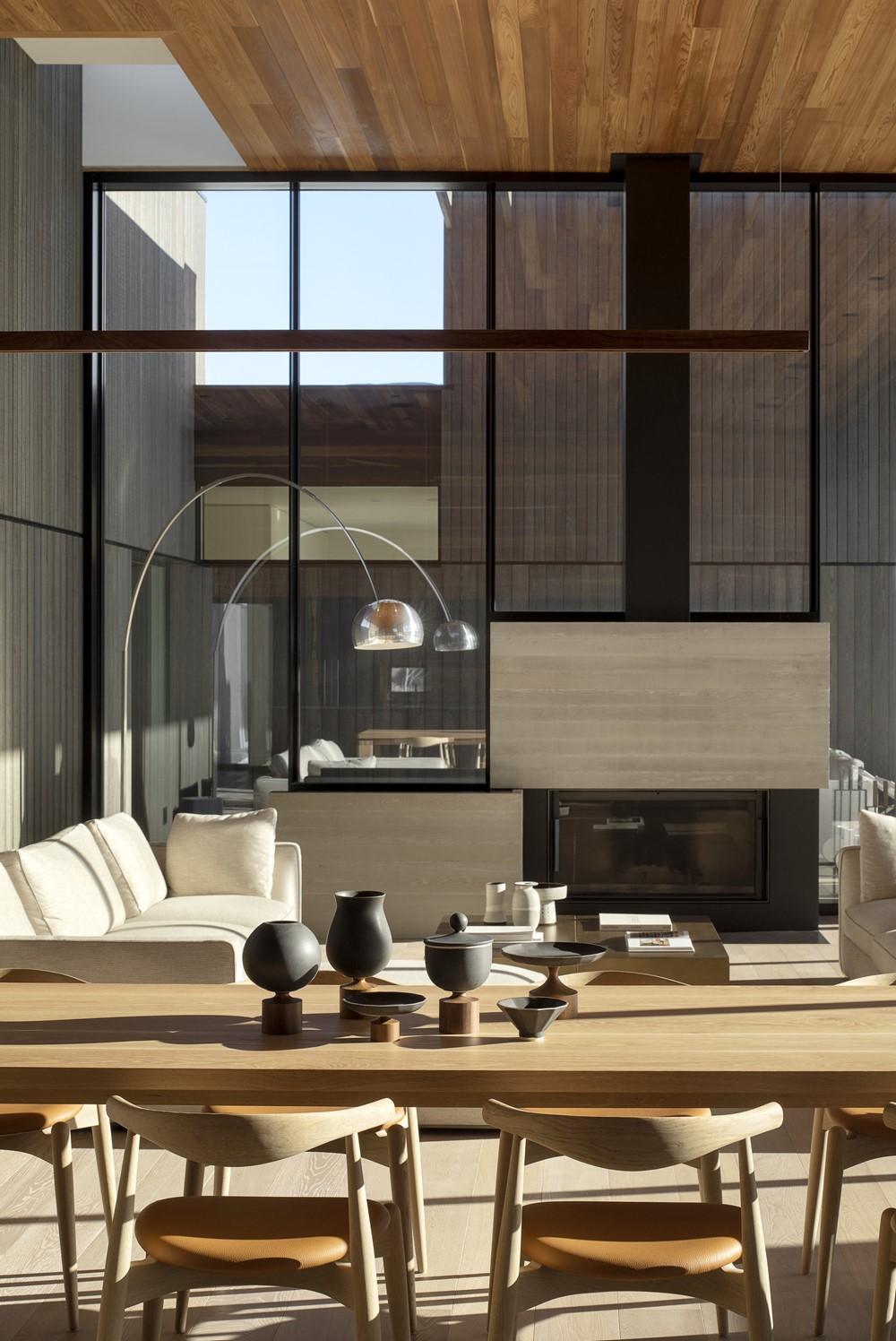
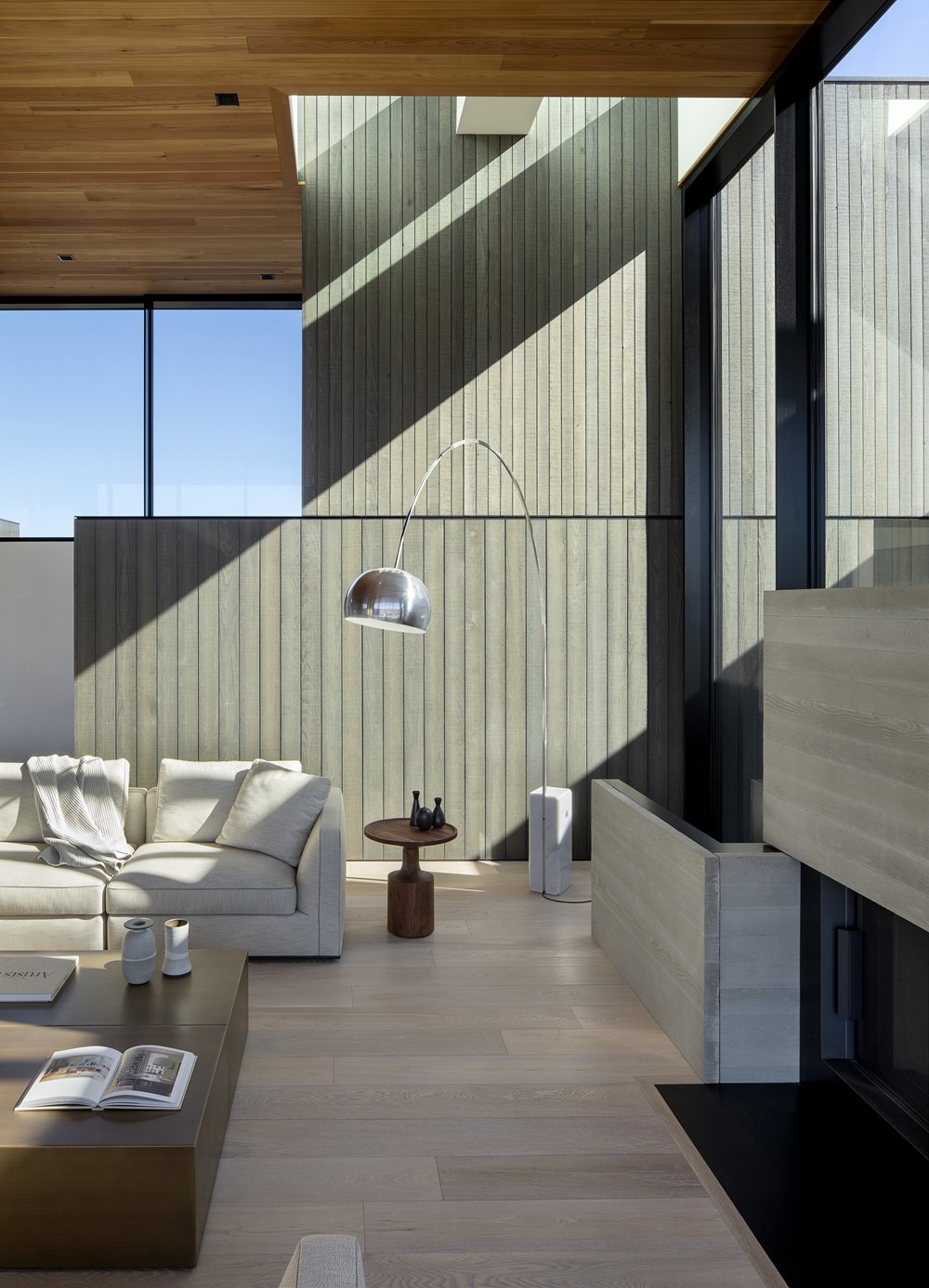
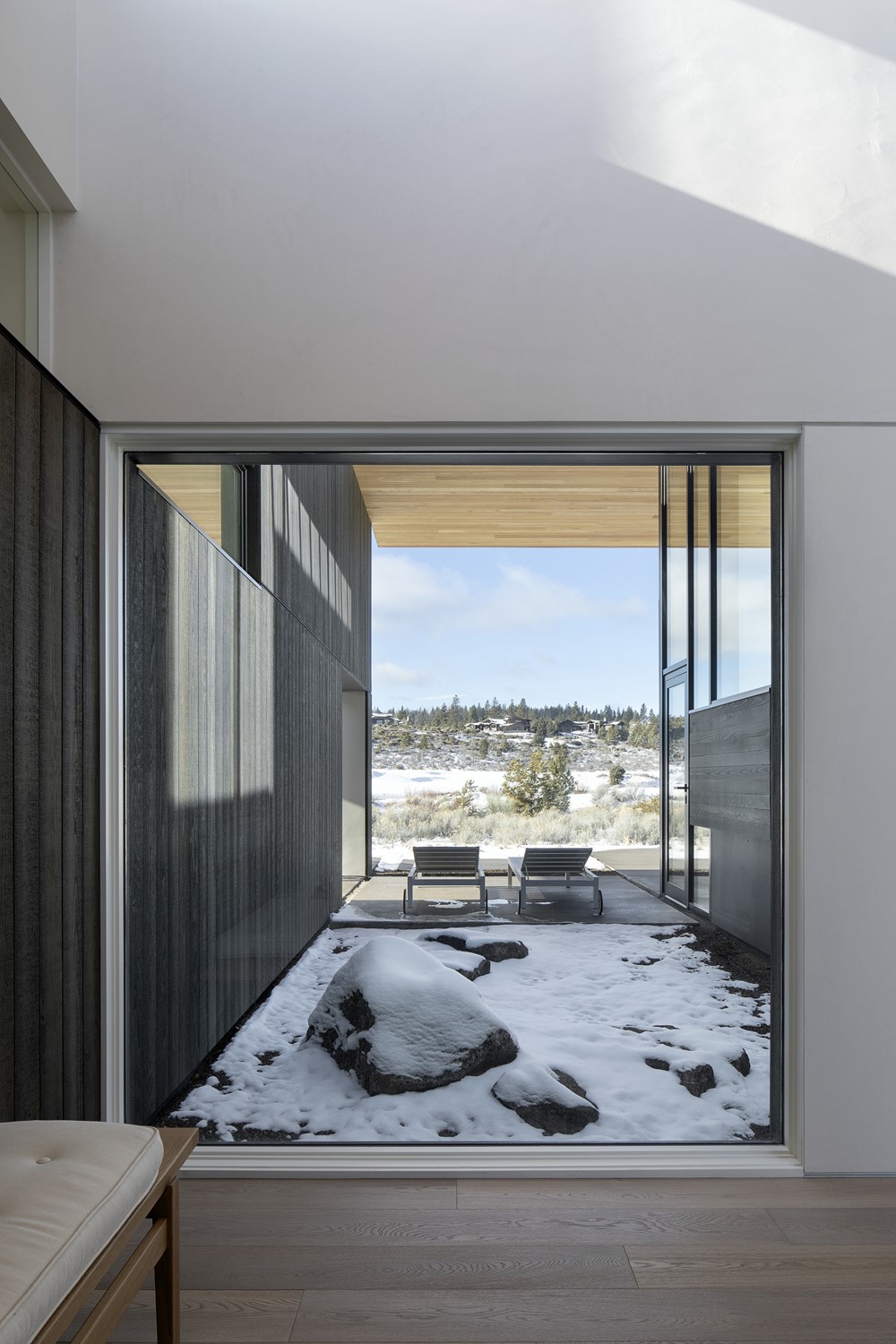
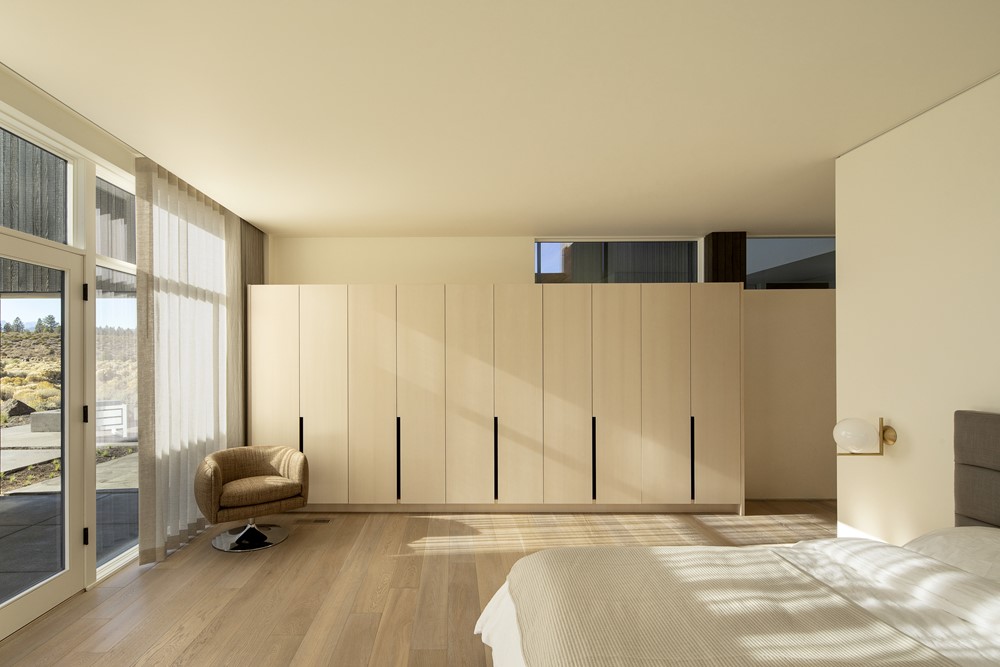
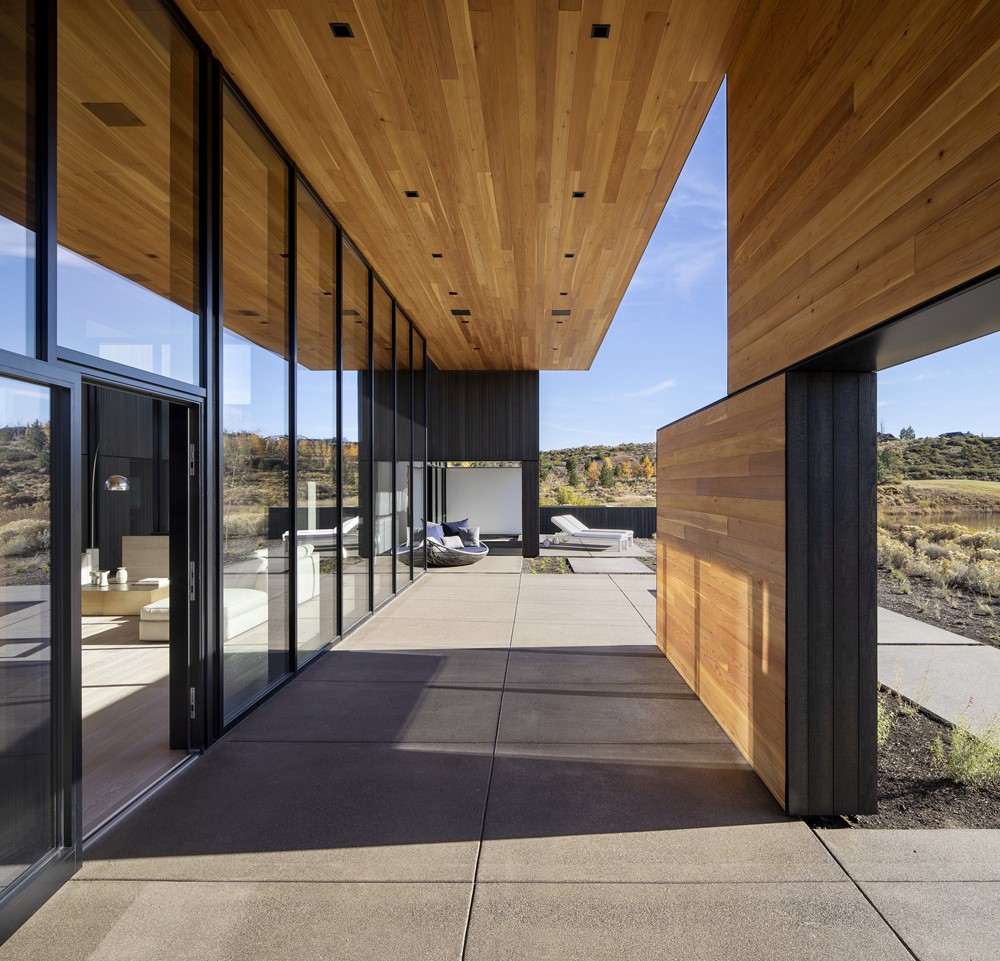
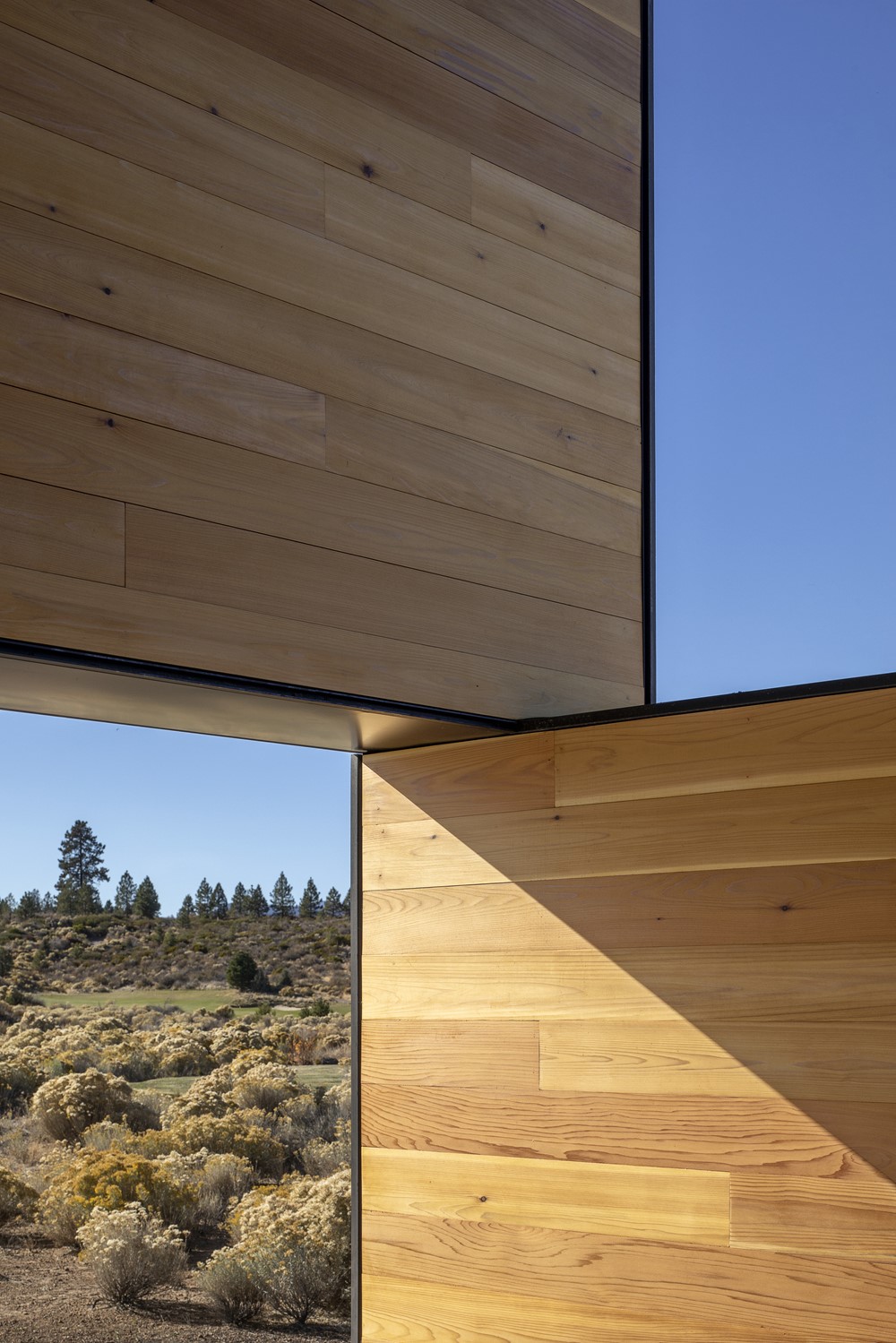
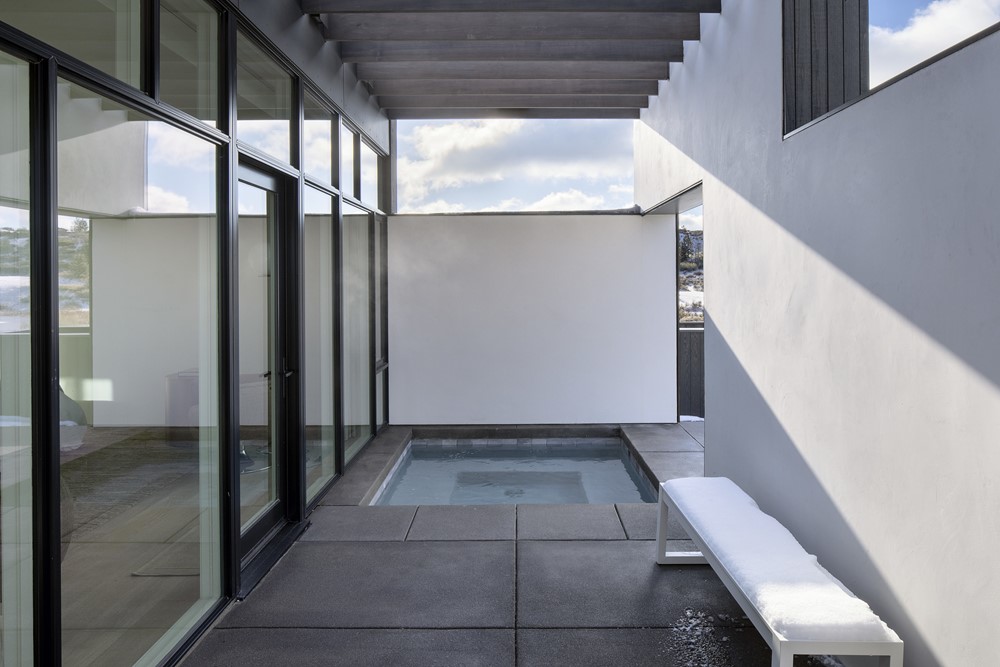

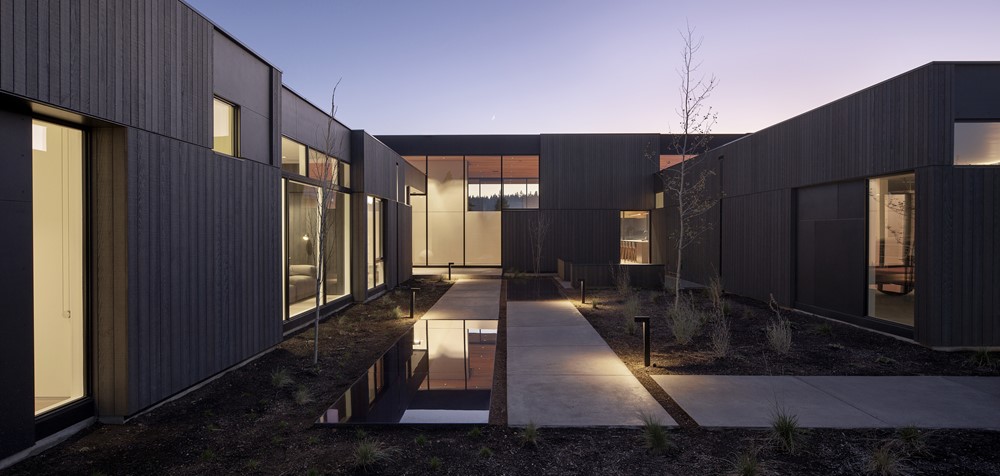


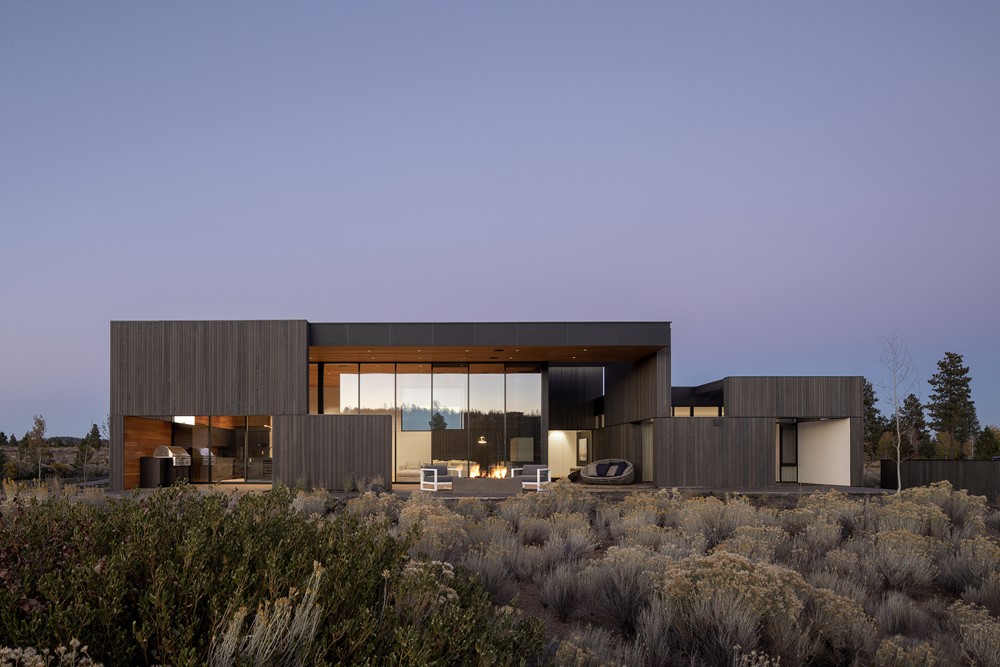
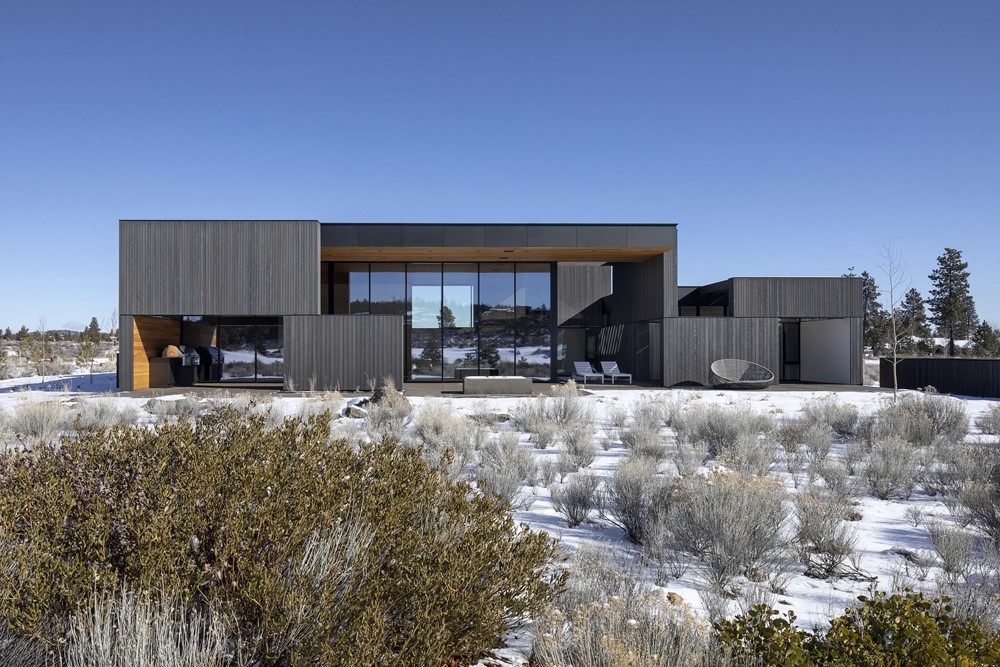
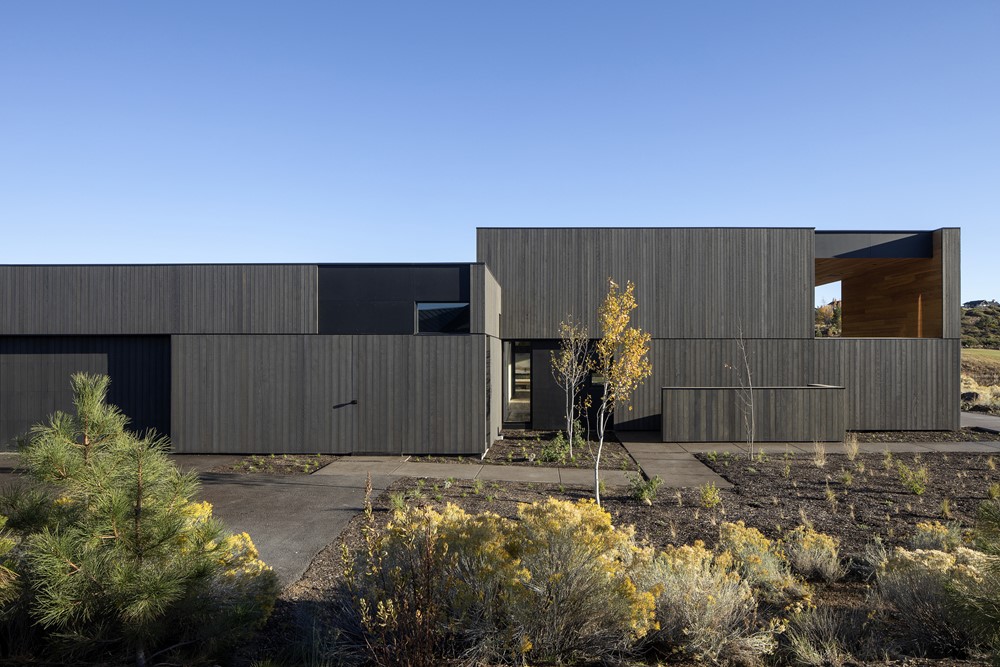
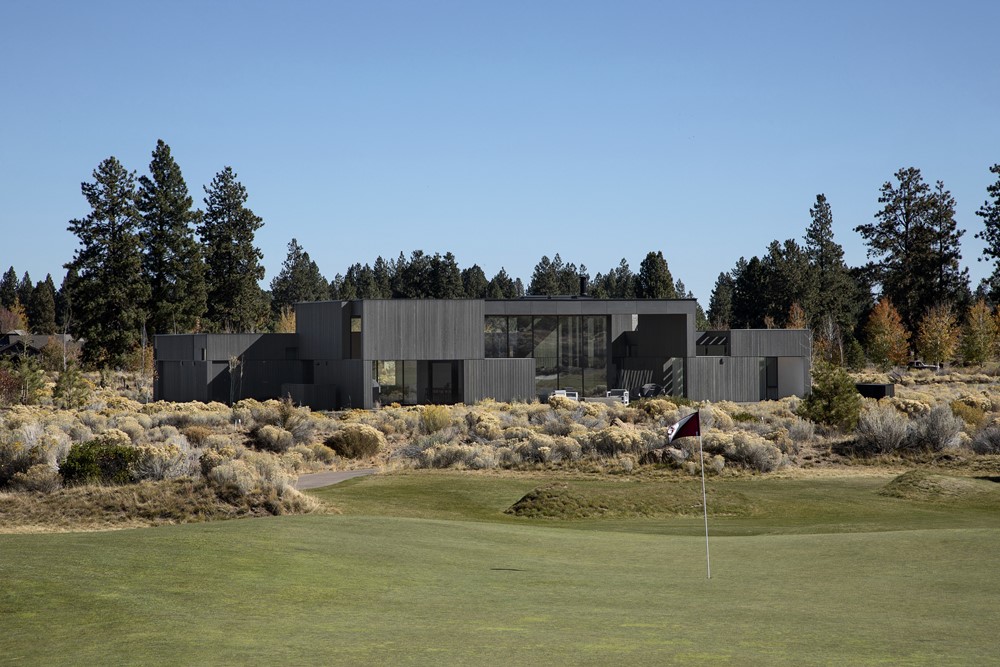
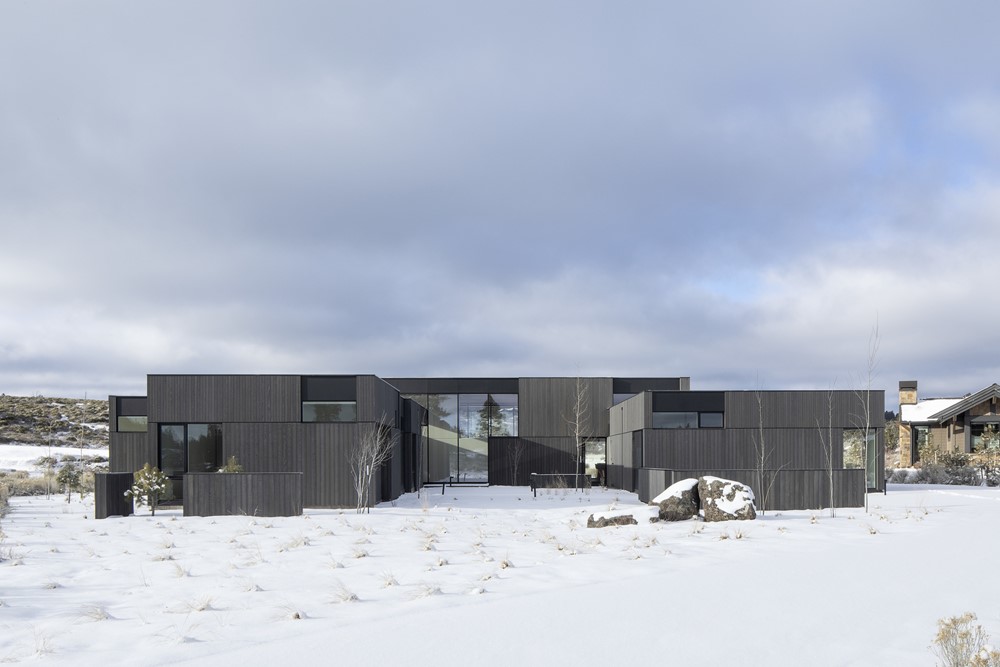
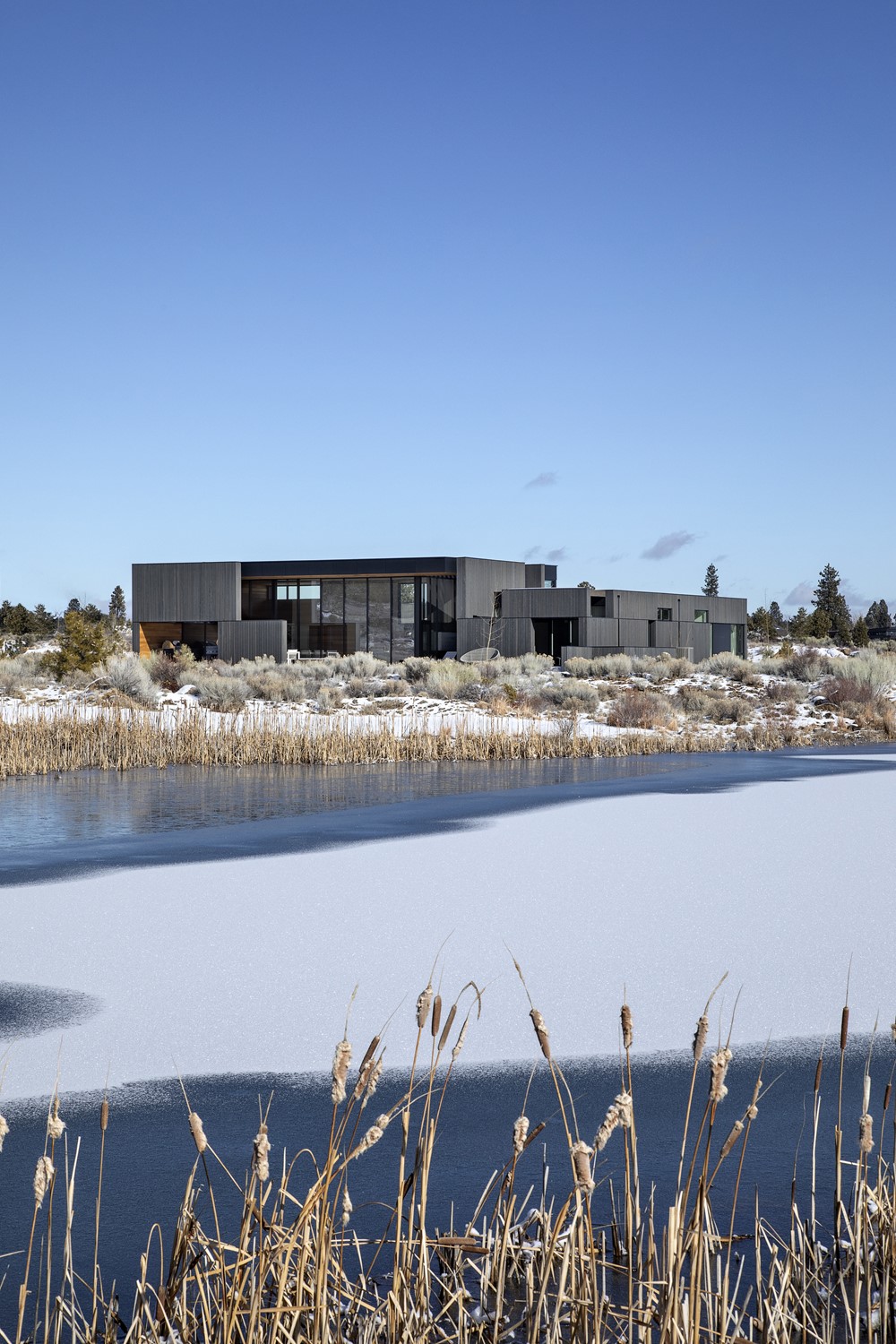
Located near Bend, Oregon, the residence’s design is heavily influenced by the natural forms, colors, and textures of the high desert landscape. The land in this distinctive region of the Pacific Northwest is extremely young from a geologic perspective, and the signs of recent geologic activity and formation can be found everywhere – in the pure forms of volcanic cinder cones to the enormous scorching lava flows and the still-sharp, jagged mountains. The sky is vast and striking, capable of cloudless deep blues, dramatic sunsets over the Cascades, golf ball sized hail, and enough snow in winter to collapse buildings. There is a freshness to the landscape and aroma in the air that cannot be found anywhere else in the world.
An exterior of cedar, steel, and glass give the High Desert Residence a bold presence in the shrubby, volcanic landscape. From a distance, the prominent cedar planes that wrap the house appear monolithic; up close, fine natural details, variations in color, and imperfections in the wood create an organic pattern that keeps the design rooted in the surrounding environment. The form of the house is a simple one designed to edit the relationship between landscape and sky, and to cultivate a unique experience of both from each room. The simple, shifting exterior planes and windows are carefully aligned so that every room has a framed view to both land and sky, but not through the same aperture. This brings focus to the immediacy of the desert flora and fauna in the entry courtyard and the garden, captures the sprawling texture of distant hills, and offers anchoring views upwards to the seemingly endless desert sky.
Interior spaces are defined by opaque elements rather than actual physical enclosure, so that voluminous rooms can also provide a sense of intimacy. The same cedar used on the exterior is also carried throughout the interiors, appearing continuous through the glass from many angles and strengthening the blended indoor-outdoor experience. A simple palette of white, black, and natural wood offers a timeless backdrop for the clients’ personal collection of midcentury furniture.
In the spirit of creating a home that keeps them and their guests grounded and present, the clients wanted High Desert Residence to be simple to operate and maintain. It prioritizes analog over high-tech features so that anyone staying there can feel comfortable and in control of the environment without needing special instructions or technical skills.
Hacker Design Team
Corey Martin – Design Principal
Jennie Fowler – Interior Design Principal
Nic Smith – Project Architect / Project Manager
Jeff Ernst – Project Designer
Project Team
Architecture and Interiors: Hacker
Contractor: Kirby Nagelhout Construction
Structural Engineer: Madden & Baughman
Photography: Jeremy Bittermann
